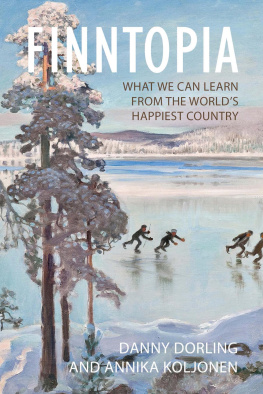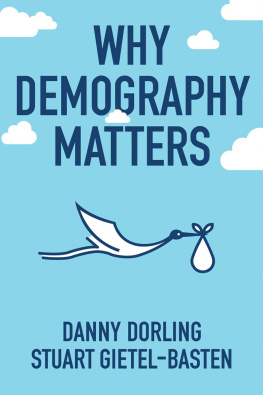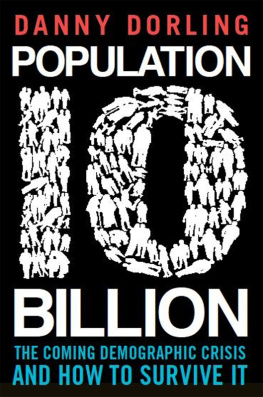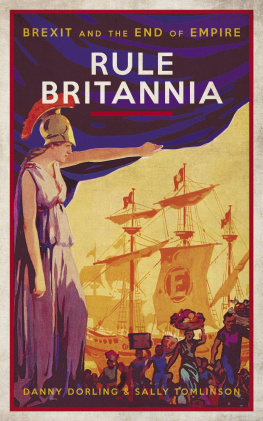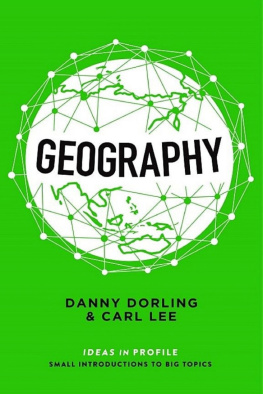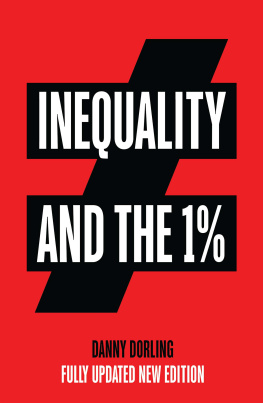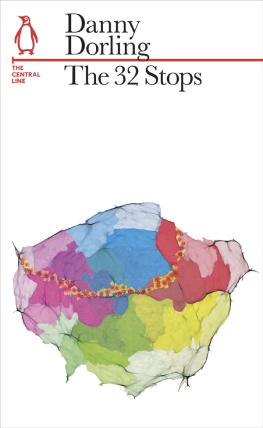SLOWDOWN
ALSO BY THE AUTHOR AND HIS COLLEAGUES
Geography
Inequality and the 1%
The Atlas of the Real World
Injustice: Why Social Inequality Persists
The Equality Effect: Improving Life for Everyone
Finntopia: What We Can Learn from the Worlds Happiest Country
Population 10 Billion: The Coming Demographic Crisis and How to Survive It
SLOWDOWN
the end of the great accelerationand why its good for the planet, the economy, and our lives
danny dorling
illustrations by kirsten mcclure
Yale UNIVERSITY PRESS/NEW HAVEN & LONDON
Copyright 2020 by Danny Dorling.
All rights reserved.
This book may not be reproduced, in whole or in part, including illustrations, in any form (beyond that copying permitted by Sections 107 and 108 of the U.S. Copyright Law and except by reviewers for the public press), without written permission from the publishers.
Yale University Press books may be purchased in quantity for educational, business, or promotional use. For information, please e-mail (U.K. office).
Set in Minion type by Newgen North America.
Printed in the United States of America.
Illustrations by Kirsten McClure.
Library of Congress Control Number: 2019952311
ISBN 978-0-300-24340-6 (hardcover : alk. paper)
A catalogue record for this book is available from the British Library.
This paper meets the requirements of ANSI/NISO Z39.48-1992 (Permanence of Paper).
10 9 8 7 6 5 4 3 2 1
To Bob Hughes (19472019): activist, academic, friend, and one of the five co-signatories of the 2003
No One Is Illegal Manifesto
CONTENTS
ACKNOWLEDGMENTS
With thanks to my father, David Dorling, who is now very happy spending most of his days sweeping the leaves and feeding the birds in his woodland garden, who kindly corrected and revised the first, second, and third drafts of this book. And to my mother, Bronwen Dorling, who always told me I could do anything I put my mind to, and that whatever I did would be okay. Alison Dorling has been more realistic as to my limitations, but always enthusiastically sure that this project was worthwhile. Robbie, Izzy, and Sol Dorling tolerated a particular obsession that lasted from when the oldest was just a teenager to when the youngest achieved that status and the oldest became an adult and got his first proper job.
My thanks especially to Anthony Caira-Carnell in Australia who, despite the severe effects of his hemophilia, suffering the legacy of the NHS infected blood products scandal, and being sixteen thousand kilometers away, very kindly offered to read all the final drafts, commented in brilliant detail on where I was going round in circles, and still kept a clear head. My heartfelt thanks are also owed to Karen Shook and Claire Hann, both of whom read and improved every draft chapter after I had amalgamated so many other peoples thoughts and edits and did so to a standard beyond that which I could ever do. Susan Laity then smoothly took over production of a complex book with many illustrations and introduced me to Robin DuBlanc, the most thoughtful and courteous copyeditor I have ever had the pleasure to (electronically) meet. Books like this are the product of a large team of people, not of individual minds, despite being marketed as such.
I am also especially grateful to Kirsten McClure, who designed the style of converting the timelines in the book to the graphics you see here and redrew all of them from my crude Excel sheets. So many others also helped and commented. I am grateful to Qiujie Shi and Tomoki Nakaya for help on statistics on China and Japan, respectively; and again to Qiujie for all her work producing a huge number of additional timelines using many different data sets that are now all on this books website (and available to all for free). And I thank Lorenza Antonucci, Ben Ayre, Aniko Horvath, Carl Lee, John McKeown, Khadija Rouf, Simon Ryde, Craig Twyford, Tara van Dijk, and others (I should have kept a list), who kindly commented on earlier versions of various chapters, as I slowly tried to untangle a mass of thoughts, opinion, and bits and pieces of evidence into this book and became somewhat tiresomely obsessed to find that almost every subject I looked into was showing some evidence of slowdown.
I am very grateful for the thoughts of the undergraduate science students of the University of Cambridge, who first heard me present these ideas in February 2019; to the postgraduate students at the London School of Economics, who commented on the first drafts of the timelines in March of that year; to all those who commented after I gave my first public lecture on this topic at the Oxford Martin School in May 2019; and to the London Universities Economic and Social Research Councilfunded PhD students for their views, given in June 2019.
Finally, I must thank above all Joe Calamia, my editor at Yale University Press, without whom this book would probably have proceeded a great deal more slowly, and very possibly not at all. He is patient, calm, and very kind. I think hell fit in well to the new future.
SLOWDOWN
to worry
imaginatively
The countrys fertility ratethe number of expected babies per womanfell to 0.98 in 2018, according to the latest government data released on Wednesday.
Song Jung-a in Seoul, South Korea, 28 August 2019
Over the past 160 years our numbers have doubled and doubled and almost doubled again. Never before have we seen such a huge rise in human population in so few generations. Never again will we. Today our population growth is slowing down. In 1859 Charles Darwin wrote of the numerous recorded cases of the astonishingly rapid increase of various animals in a state of nature, when circumstances have been favorable to them during two or three following seasons. Using examples ranging from minuscule seedlings to giant elephants, he discussed the very rare cases in nature when exponential population growth occurred in a species. In fact, the best example he could have picked would have been that of his own species, humans, who at that time were just beginning their own unprecedented, exponential, worldwide increase in numbers.
Today slowdown (a word first used in the 1890s, meaning to go forward more slowly) affects far more than our rate of population growth. It affects almost every aspect of our lives. Our current slowdown represents a huge challenge to the expectation of acceleration, and a step into the unknown. To what extent are our current belief systems (economic, political, and otherwise) built on assumptions of rapid future technological change and perpetual economic growth? Accepting that a slowdown is upon us will require us to shift our fundamental view of change, innovation, and discovery as unalloyed benefits. Will we be able to accept that we should stop expecting ceaseless technological revolutions? The possibility that we might not sensibly be able to do so is itself frightening. What mistakes will we make if we assume that slowdown is unlikely and new great shifts lie just around the corner? What will happen if things stay much the same as they are now while the rate of change simply slows down?
Imagine that you have spent your life on a speeding train and you suddenly feel the brakes being applied. You would worry what was about to happen next. Now imagine that not just you but all the people you knowas well as their parents, grandparents, and great-grandparents, as far back as anyone can rememberhave all lived on that very same speeding train, and that the train has been accelerating for virtually all of their lives. For you, hurtling forward at breakneck speed is comfortingly normal, but now you can begin to feel the slowdown, a new and frightening feeling. However, because the train is still rushing forward, people all around you are still talking of accelerationthe increasing pace of changealthough in reality the train is no longer going ever faster. Something has changed. Out of the window the landscape is going by less quickly; everything is slowing down. An era is ending.
Next page

